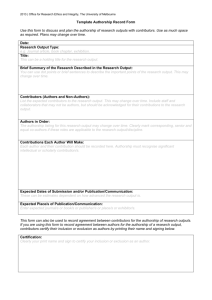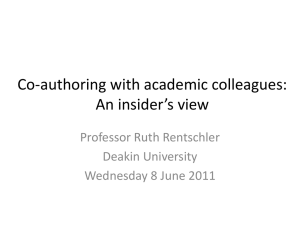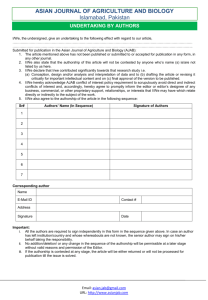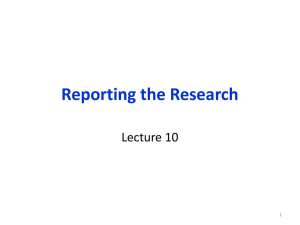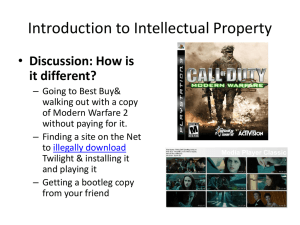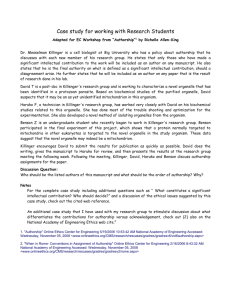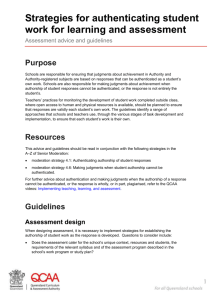Archived letters - University of Denver
advertisement
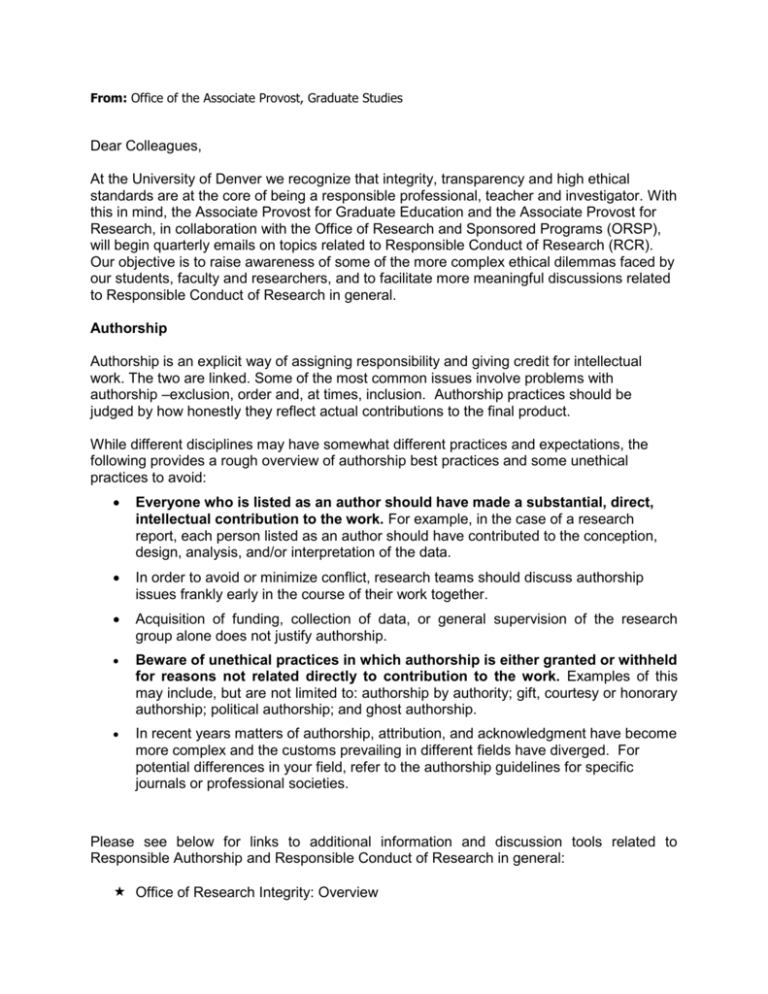
From: Office of the Associate Provost, Graduate Studies Dear Colleagues, At the University of Denver we recognize that integrity, transparency and high ethical standards are at the core of being a responsible professional, teacher and investigator. With this in mind, the Associate Provost for Graduate Education and the Associate Provost for Research, in collaboration with the Office of Research and Sponsored Programs (ORSP), will begin quarterly emails on topics related to Responsible Conduct of Research (RCR). Our objective is to raise awareness of some of the more complex ethical dilemmas faced by our students, faculty and researchers, and to facilitate more meaningful discussions related to Responsible Conduct of Research in general. Authorship Authorship is an explicit way of assigning responsibility and giving credit for intellectual work. The two are linked. Some of the most common issues involve problems with authorship –exclusion, order and, at times, inclusion. Authorship practices should be judged by how honestly they reflect actual contributions to the final product. While different disciplines may have somewhat different practices and expectations, the following provides a rough overview of authorship best practices and some unethical practices to avoid: Everyone who is listed as an author should have made a substantial, direct, intellectual contribution to the work. For example, in the case of a research report, each person listed as an author should have contributed to the conception, design, analysis, and/or interpretation of the data. In order to avoid or minimize conflict, research teams should discuss authorship issues frankly early in the course of their work together. Acquisition of funding, collection of data, or general supervision of the research group alone does not justify authorship. Beware of unethical practices in which authorship is either granted or withheld for reasons not related directly to contribution to the work. Examples of this may include, but are not limited to: authorship by authority; gift, courtesy or honorary authorship; political authorship; and ghost authorship. In recent years matters of authorship, attribution, and acknowledgment have become more complex and the customs prevailing in different fields have diverged. For potential differences in your field, refer to the authorship guidelines for specific journals or professional societies. Please see below for links to additional information and discussion tools related to Responsible Authorship and Responsible Conduct of Research in general: Office of Research Integrity: Overview https://ori.hhs.gov/publicationsauthorship Office of Research Integrity: Quick Guide http://ori.hhs.gov/education/products/niu_authorship/index.htm International Committee of Medical Journal Editors: A common starting point for a discussion of authorship is the International Committee of Medical Journal Editors (ICMJE) guidelines. http://www.icmje.org/recommendations/browse/ Online Ethics Center for Science and Engineering: Resources for Group Mentoring in Responsible Conduct of Research http://www.onlineethics.org/cms/11865.aspx Guidelines for Responsible Conduct of Research: http://www.provost.pitt.edu/documents/GUIDELINES%20FOR%20ETHICAL%20PR ACTICES%20IN%20RESEARCH-FINALrevised2-March%202011.pdf For more information, or for a more detailed presentation on the topic of Responsible Authorship, or other topics related to RCR, please feel free to contact Emily Caldes in the Office of Research Compliance at Emily.caldes@du.edu or 303-871-4052. Corinne Lengsfeld, PhD Associate Provost for Research Professor, Department of Mechanical and Materials Engineering University of Denver 303-871-4843 303-871-4450 FAX http://www.du.edu/secs/departments/mme/facultyandstaff/corinne.html Editor for the Americas, Atomization and Sprays http://www.begellhouse.com/journals/6a7c7e10642258cc.html
